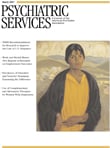I was driving in the car with two friends of mine, who are both psychiatrists, last weekend. One of my friends was discussing a particularly challenging problem she was confronting, and what came to my mind was Pauline Boss's book, Loss, Trauma, and Resilience, which I had just finished reading.
Dr. Boss has covered important territory, because she has focused on the neglected subject of loss, particularly as it applies to situations in which the person is physically gone but not dead. Into this category fall experiences as traumatic as having a family member who is kidnapped or a prisoner of war or whose body is never found after a disaster. Other circumstances are so unfortunately common that they are not generally classified as "traumatic," such as being a part of a family in which someone suffers from Alzheimer's disease, chronic mental illness, or addiction.
What these situations have in common, according to Dr. Boss, is the condition of ambiguous loss—situations in which it is not known if a loved one is dead or alive, is absent or present, or is in or out of your family or relationship. In some cases, the ambiguously lost person is physically absent but remains uncomfortably psychologically present. In other cases the lost person is physically present, but the person he or she once was is gone in some fundamental ways. In such cases, the classical notion of "closure" becomes impossible. The actual experience of ambiguous loss is so universal that Dr. Boss questions the viability of closure as a useful concept. She asserts that in fact "closure is a myth" and that "perhaps the reason we talk so much about closure is that we can't stand the pain."
Although Boss spends a great deal of time in the book discussing her theoretical premises and the therapeutic frameworks that inform her work, she is obviously an experienced family therapist, and the meat of this book for clinicians comes from the therapeutic guidelines that clearly derive from a wealth of practical, hands-on experience with suffering individuals and families. She does not deny the traumatic losses she has encountered, but her experiences have taught her about the resilience that often lies in the background of families who brush up against, or are hit with the full force of, tragedy.
The book has some redundancy, which can be forgiven in service of the value of repetition. The chapter on trauma and stress is weakened by the lack of reference to other people in the field of traumatic stress studies who have been carefully enumerating the connections between trauma and loss.
This decidedly is a book worth reading, especially for new therapists in the field, because it reminds us all that both psychodynamic and family systems principles are as relevant today as they were in previous decades. For human beings, attachment and loss remain central to our existence on this planet.

